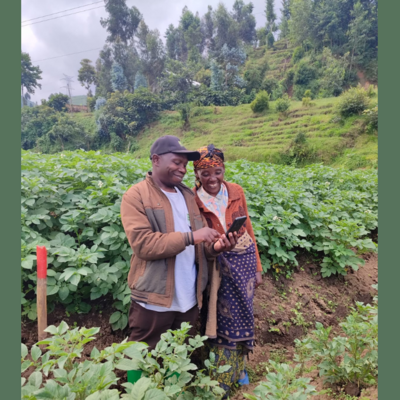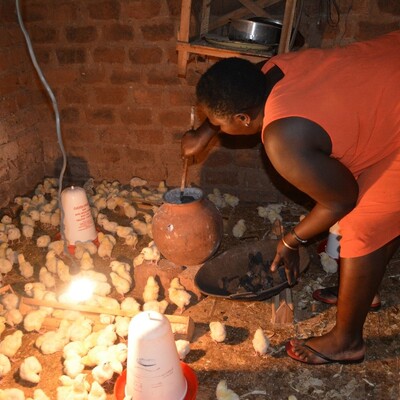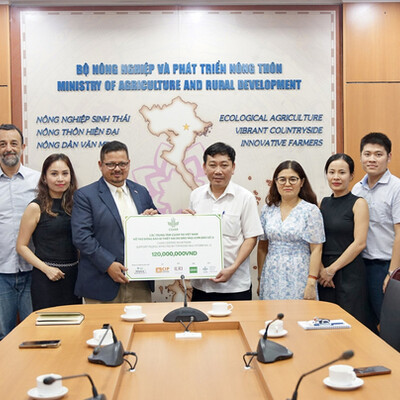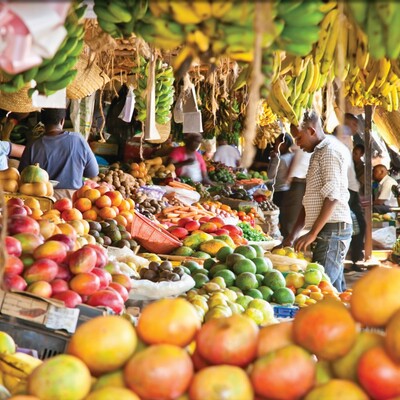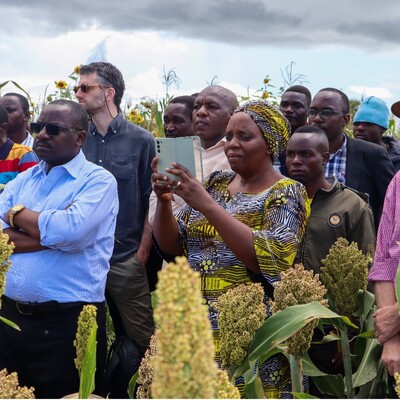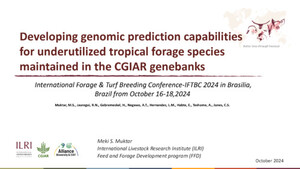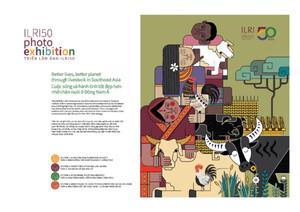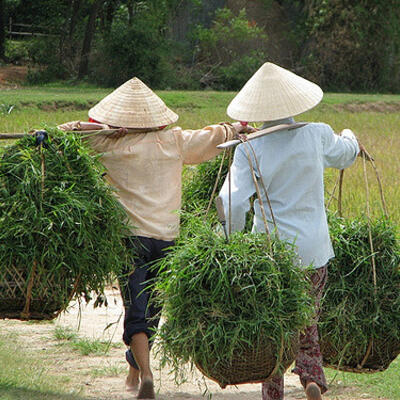
Social learning and climate change: CGIAR and partners in the (local) decision-making whirlwind
The CGIAR Research Program on Climate Change, Agriculture and Food Security (CCAFS) last week convened a workshop on communication and social learning in climate change. How did we tackle to challenge of facilitating a ‘social learning’ process with a room full of facilitators and communicators?
CCAFS seeks to “overcome the threats to agriculture and food security in a changing climate, exploring new ways of helping vulnerable rural communities adjust to global changes in climate”. One of the four pillars of the program – so-called Theme 4 – focuses on ‘integration for decision-making’.
In late 2011, the theme commissioned a scoping study of social learning (1) and communication in climate change to help guide CCAFS investments and develop a strategy to support local decision making in this area. The scoping study emerged out of a request for proposals that generated dozens of excellent proposals from around the world. The original process following the request for proposals was adapted to include a workshop where CCAFS could engage with a diverse group of people – tapping into their rich knowledge and learning.

Jo-Ellen Parry (IISD) and other participants grappling with social learning at the Communication and social learning workshop (credits: Zerihun Sewunet/ILRI)
The workshop – on ‘communication and social learning: supporting local decision making on climate change, agriculture and food security‘ – was hosted by the International Livestock Research Institute (ILRI) at its Addis Ababa campus.
The Knowledge Management and Information Services (KMIS) team at ILRI helped organize, facilitate and report about the workshop; participants drew on a discussion paper prepared by IIED (www.iied.org) and IDS (www.ids.ac.uk)
The workshop was a social learning exercise in itself, with many people involved in tackling the seven objectives of the workshop and co-creating solutions and ideas to take forward. The process was devised to maximize interaction among participants.
As the workshop evolved, so we adapted the process, seeking through facilitation to embed ‘social learning about social learning’. The program thus mirrored some typical challenges of social learning – potential miscommunication and the need for translation (leveling the knowledge among all parties, ironing out different understanding), the need for iterative and interactive processes to engage in collective sense-making, the tensions around power dynamics (who learns, who owns the social change being proposed … ), the transaction costs (time) to ensure social learning is conducted properly and the need for lively and creative facilitation.
Indeed, on this latter point, the discussion paper mentioned:
We need many, many more creative participatory facilitators. Without them, much of what we hope for will not happen. Who, where, in what ways, needs to do what to generate and support them? What needs to change?”
The social reporting around the workshop further contributed to this ‘messy’ social learning process by capturing live notes from the group discussions and plenary sessions on the event wiki. The KMIS team organized a series of video interviews and pictures and documented all plenary group reports as videos.
The workshop turned out to be very challenging: Not all participants knew about CCAFS; they had very different understanding of climate change, social learning and communication, and how they are connected. The CCAFS team had high expectations in terms of outputs, i.e. an action plan setting out some promising investment areas. The scale of ‘local’ decision-making further spiced up the debates.
After three days grappling with the complex and diverse issues, participants zoomed in on five action areas. These were presented to some invited external experts who were asked to give constructive and critical feedback. They praised the concrete outputs but pointed out several areas of concern: the need to keep things simple, to connect with and explain complex issues to other types of people not versed in social learning, and moving from learning to action.
The meeting showed that a social learning process applied in a workshop, although messy and sometimes time-consuming, can produce concrete results and helps increases cohesion within a diverse group.
The experience was a bit like a whirlwind, but one that brings refreshing ideas to a not-so-new focus on strengthening local decision-making…
I really enjoyed the nearly three days together and found it a great workshop with a roomful of interesting, active and creative people. (Chesha Wettasinha, Prolinnova)
All workshop outputs are available online:
- The workshop wiki with notes, outputs, follow-up steps: http://commsl4climate.wikispaces.com/
- Pictures
- The discussion paper
- A summary blog post by the CCAFS team
Discover also this blog post by the workshop facilitator.
Notes:
(1) Social learning “could be defined as a learning and knowledge sharing process that is based on dialogue and reflection among the parties involved in the process about complex and uncertain issues” (Moushumi Chaudhury).





